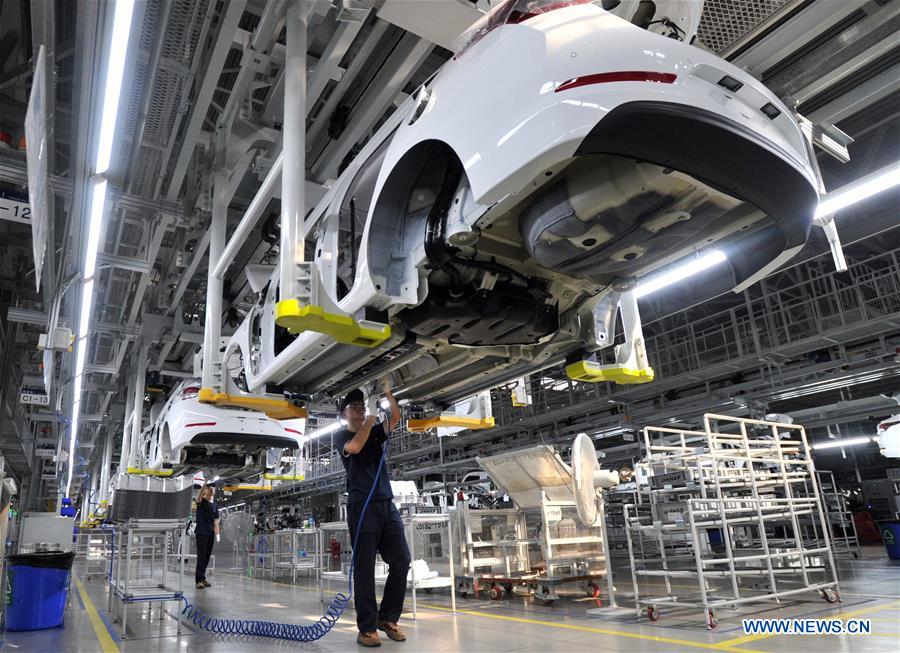Growth in China's factory and service activity cooled in November amid economic downward pressure.
The purchasing managers' index (PMI) for China's manufacturing sector came in at exactly 50 this month, down from 50.2 in October, the National Bureau of Statistics (NBS) said Friday.
A reading above 50 indicates expansion, while below reflects contraction.
"The growth of the manufacturing sector slowed down, but its industrial structure continued to improve," said NBS senior statistician Zhao Qinghe.
The sub-index for production edged down from 52 in October to 51.9 in November, while the sub-index for new orders dipped from 50.8 to 50.4 during the same period.
Zhao said the sector's industrial transformation and upgrade continued, with consumption playing a fundamental role in boosting the Chinese economy.
PMI for sectors of equipment manufacturing, high-tech manufacturing, and consumer goods manufacturing stood at 50.5, 51.7 and 51.6 in November, respectively, all higher than a month earlier, according to the NBS.
Friday's data also showed that China's non-manufacturing sector remained steady in November, with the PMI for the sector standing at 53.4, down from 53.9 in October.
The service sector, which accounts for more than half of the country's GDP, maintained stable growth, with the sub-index for business activity in the industry coming in at 52.4 in November, higher than 52.1 last month.
Thanks to the sales promotion during the Singles' Day online shopping festival, rapid expansion was seen in sectors including the postal service, Internet software and telecommunications, where the readings were all above 56, the NBS said.
In the sectors of banking, securities and finance, the sub-index for business activities surpassed 60.
The sub-index for business activity expectation rose 0.3 points to 60.9 and remained at a high level of the range, showing that non-manufacturing enterprises were optimistic about future market development.
Friday's data came amid the concerns over a slowdown in the Chinese economy due to the recent softening of several economic indicators and mounting external uncertainties.
"The manufacturing PMI continued to fall in November, revealing a downward trend," said Zhang Liqun, researcher with Development Research Center of the State Council.
"Currently, we need to expand domestic demand actively to sustain the steady growth of Chinese economy."
Eva Yi, analyst at the China International Capital Corporation Ltd., also attached great importance to domestic demand expansion, saying "domestic demand stabilization should be taken as the top priority for cyclical management."
The Chinese authorities this year have unveiled a raft of measures to boost the economy including cutting taxes and fees, providing favorable loans to private enterprises and improving the business environment.



